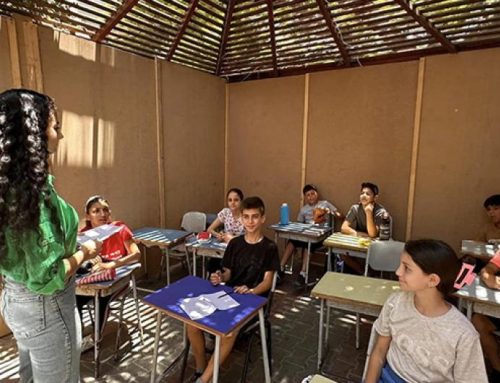How did we ‘evolve’ to become such a lonely generation? It’s one of the questions I’ve pondered over among a million other thoughts. Why is it so challenging for one to find a true, genuine, and committed relationship in this era? Have we really lost our humanity in being able to connect, empathize and feel compassion for one another? How is it that so many of us long for a healthy emotional bond with a lifetime partner yet are unable to keep our hearts open? What does the word ‘love’ even mean?
An infinite number of questions have been consuming my mind for the last year or so. I had to take a step back and dig for what scholars, authors, and experts in the field of psychology said about love and sustaining a healthy relationship. Deep in my heart, I felt the equation was fairly simple – two people meet, talk, connect, create memories together, fall in love and decide to continue their life together. But maybe this thought process was way too simplistic to answer any of my questions.
When I asked people how they define love, I got a mixed pool of answers ranging from “feeling comfortable with another individual’ to ‘all you can think about is that person’. Among the other responses I got were ‘you can’t imagine hurting the person you love’ and ‘your lives just start to revolve around each other’. But to me, all of above sounded like the package that comes with love. No one actually gave me a definition of what love means. When I asked myself that same question, my mind brought it down to human biology. How when we meet someone new the excitement hormones like dopamine and oxytocin get released into our system. Does that mean that love is nothing but another form of (psychological) addiction? When I further researched about this topic, I found that very well-respected individuals had a similar hypothesis. For example, Helen Fisher, one of America’s most prominent anthropologists said, “that love addiction is just as real as any other addiction, in terms of its behavior patterns and brain mechanisms”. “Besotted lovers express all four of the basic traits of addiction: craving, tolerance, withdrawal, and relapse.”
Going back to my main questions about what love is and why have we become so ‘disconnected’, I finally found a sound explanation. Bell Hooks is one of the authors who truly gave me insight into why ‘love’ has lost its valuable meaning over time. Hooks took a reversed approach by defining what love is not and then peeling the layers of why love gets confused with many other unpleasant ‘emotions’. She coined a very interesting term that defines how when we feel drawn to people, we often connect with people through some sort of investment. That term is ‘cathexis’ and most of us “confuse cathecting with loving”. When we emotionally invest in other people, we insist that we love them even if they don’t treat us right or even hurt our feelings. We turn a blind eye on emotional abuse because we can’t accept that our investment is going in vain. That happens even though we subconsciously know that love and abuse cannot co-exist.
The lessons we learn about love during our childhood years can be the reason behind this. Majority of us have been taught to think of love in the context of reward and punishment. We are punished when we don’t “please” our parents or do the “right thing”. But when we “follow the rules” and do what we are asked to, we get rewarded with acts of attention and words of affection. That simply teaches our minds that love is conditional. Being loved is equivalent to receiving what one wants.
Another interesting phenomenon is how in many households abuse and emotional neglect co-exist with love, or at least that is what the parent figure teaches their children. Children are told they are being punished for doing the wrong thing because they are loved and cared for by their parents. We need to stop tainting love with abuse (emotional or physical) and neglect. Abuse, neglect, and humiliation negate love.
On the other hand, parents who teach their children to set boundaries and to practice self-discipline raise adults who have a much sounder understanding of love. Teaching discipline without punishment is not an easy task especially given that both terms have been used interchangeably in an incorrect manner. However, discipline can be taught by showing children to clean up after their play time and taking responsibility for their decisions and actions. Growing up to know ‘where to draw the line’ when it comes to your boundaries – in the way you are being treated and treating others – is an extremely important quality that can build (or break) any relationship.
The parent-child bond is an extremely crucial one that builds one’s foundation to give and receive love. So many of us end up choosing partners who resonate with the way we were loved when we were younger. Therefore, we end up in a relationship that has the same sort of dynamic that we had with our parent(s).
Also, it cannot be denied how love has been extremely romanticized to the extent that we think of it as a feeling that we have no control over. But if we look at feelings through a different lens of how our actions can affect the way we feel, we can automatically get rid of the assumption that love is something that we fall into without any will or choice. The truth is that love is “having the will to nurture our own and another person’s spiritual growth”. Why many of us run away from this perception is because it automatically assumes accountability and responsibility, not just for our actions – but also for our intentions that inform how we behave.
Hooks describes love as “the combination of trust, commitment, care, respect, knowledge and responsibility”. These qualities need to essentially start within ourselves in order to extend it to others in a healthy manner, especially if we identify as having a ‘wounded-heart’. We need to practice the true meaning of self-love and self-esteem to be able to love others in a healthy manner. Nathaniel Branden, a Canadian-American psychotherapist simplified the term self-esteem through six pillars: living consciously, self-acceptance, self-responsibility, self-assertiveness, living purposefully and practicing personal integrity.
To wrap up, loving ourselves first provides our inner child with the unconditional love that we have longed to receive from someone else. This saves us from being in a co-dependent or disconnected relationship that has an unhealthy power dynamic. When we handle ourselves with love and integrity, it automatically is reflected in our relationship with the outer world.
By Mai Elsayed






